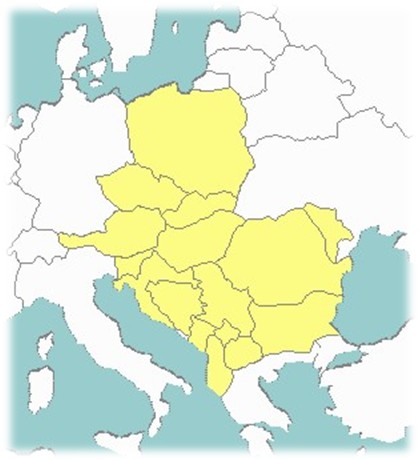









“Politehnica” University of Bucharest, Romania
Faculty of Mechanical Engineering and Mechatronics
Department of Machine Elements and Tribology
Assoc. Prof. PhD Eng. Alexandru RADULESCU
Short description, research and educational contributions
The Faculty of Mechanical Engineerings and Mechatronics was a division of the Faculty of Electro-mechanics founded in 1921. The faculty breaks down into the following domains and specializations: “Mechanical Engineering” - thermal systems and equipment, hydraulic and pneumatic systems, industrial process equipment; “Mechatronics and Robotics” - mechatronics and nanotechnologies; “Engineering and Management” - engineering economics applied to mechanics; “Applied Engineering Sciences” - optometry. There are four departments in the faculty: “Machine Elements and Tribology”, “Thermal Machinery and Equipment and Thermotechnics”, “Technological Equipment” and “Fine Mechanics and Mechatronics”. The studies are organized on three level: Bachelor’s degree - with 440 students; Master degree with 160 students; Doctoral degree with 40 students. The main laboratories of the faculty are: “Center of Excellence in Mechanical Engineerings and Tribology”; “Network of laboratories for the development of thermo-mechanical processes for clean and efficient use of alternative fuels”; “Laboratory for the development of robots and artificial intelligence equipments”; “Laboratory for processing of polymeric materials”; “IT network laboratories of the faculty with a total of 200 last generation computers”.
The Department of Machine elements and Tribology is involved in the following program studies: - Undergraduate courses in: Machine elements and Mechanisms; Tribology; Management for Mechanical Engineering; IT basis for Mechanical Engineering; - Postgraduate courses in: CAD-CAE in Mechanical Engineering; Entrepreneurship for SMEs; Biomedical Engineering. In the Department functions the “Center of Excellence in Mechanical Engineerings and Tribology”, which has four laboratories:
- Tribology
- Rheology
- Mechanical transmissions
- Computer assisted mechanical engineering.
The educational activities of the Department are in Romanian, English, French and German and the main fields are: Machine elements and Mechanisms; Tribology; Mechanical transmissions; Finite element analysis; Computer aided design. The respective contribution of the Department of Machine elements and Tribology to the CEEPUS project concerns the development of the following long term scientific ideas:
• Rheology of lubricants (oil, greases, biodegradable lubricants, technological fluids etc.)
• Tribological properties of coatings materials (mechanical properties, adhesion of coatings and engineered surfaces, process-structure-property interrelationships, property/performance mapping)
• Reliability and durability of mechanical components (damage accumulation model for various machine elements, vibration and noise of gears and gearboxes, flexible product development for machine elements)
• Biotribology (tribology of human joints and prothesis, rheology of sinovial fluid)
• Tribological behaviour of materials in dry and boundary friction (Stribeck curve, friction and wear processes and phenomena).


Copyright © 2012-2015, UCTM CEEPUS Tribology
Participating institution - partner






